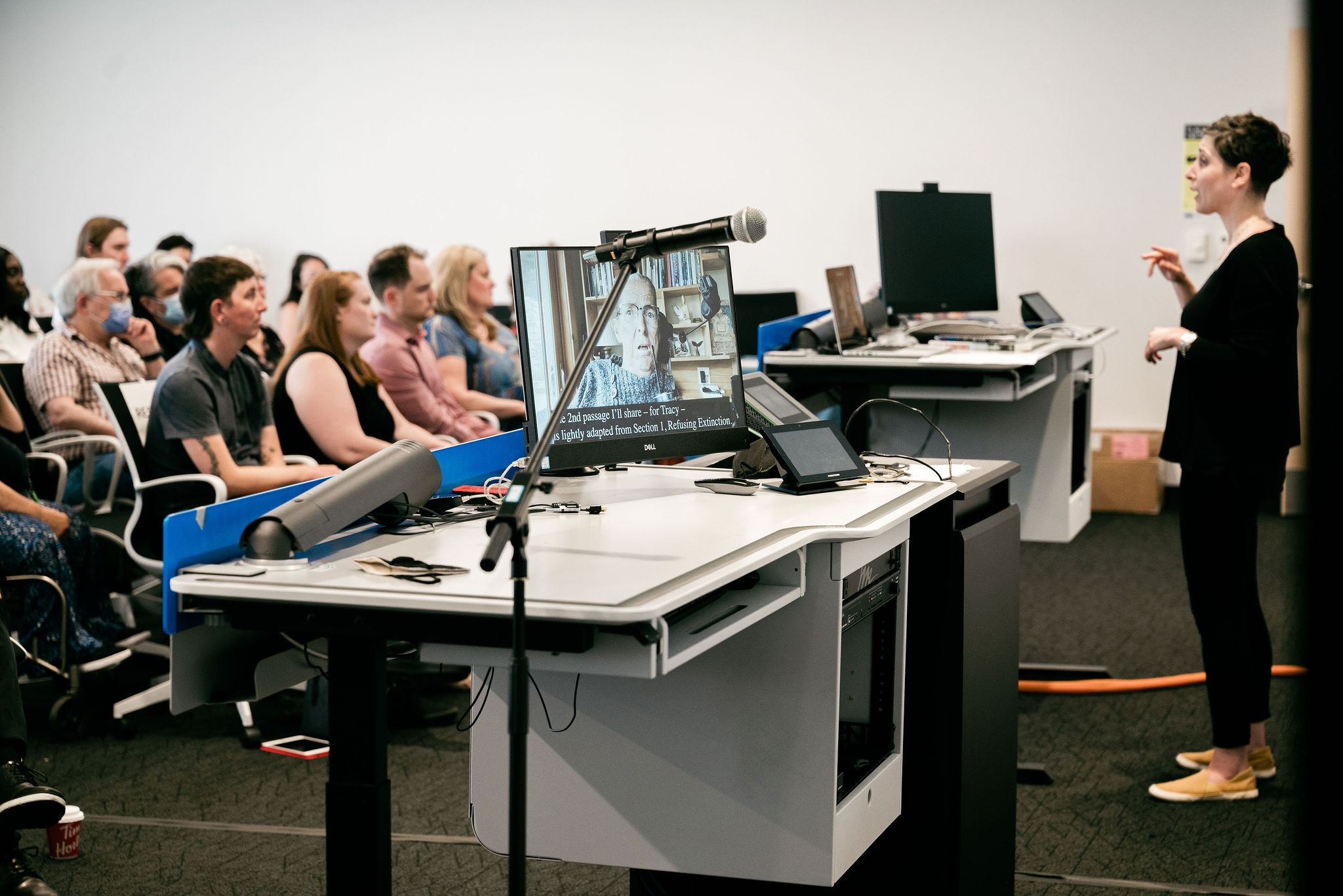About the Lab
The Disability Publics Lab is part of the School of Disability Studies at Toronto Metropolitan University. Our Lab brings people together to share ideas and research. We especially welcome people who are disabled, Deaf, mad, fat, aging, and anyone whose ways of being may be different from what many people think is typical. We create a space where all kinds of people can work together in respectful and equal ways.

Photo from the Dispatches from Disabled Country book launch event with Catherine Frazee. Credit: Lisa East
What We Focus On
Our work is focused on making research accessible, which means we try to make it welcoming and open to as many people as possible. We see accessibility in two main ways:
- Expansive Accessibility: For us, accessibility is more than following rules. We actively remove barriers to make it easier for people to join and participate in our work, especially if they have different needs or experiences. This practice allows us to open up research opportunities to people who have often been excluded from taking part in or leading research.
- Relational Accessibility: We believe that accessibility is something we create together. Every day, we work with each other, our partners, and our communities to make research more open and accessible.
Our Lab creates and shares resources that work both online and in person, so people can join our work from wherever they are. One of our main goals is to make research available and accessible to everyone, not just at the university. We want people from all communities to explore and think about important social issues with us. Our hybrid practices are key to our commitment to access.
- Event Title:Disability Publics Lab Discussion: jialu pombo - Where Language Breaks, We BeginJuly 24, 20252:00 PM EDT - 3:00 PM EDTEvent open to:TMU Faculty, Staff, Researchers, and StudentsEvent Location:Hybrid event: Disability Publics Lab – SHE Building, Room 576 (99 Gerrard St. E.) and via Zoom (link shared upon registration)Event Contact: Please register by emailing Tali Cherniawsky at avital.cherniawsky@torontomu.ca. Include whether you plan to attend in person or virtually.